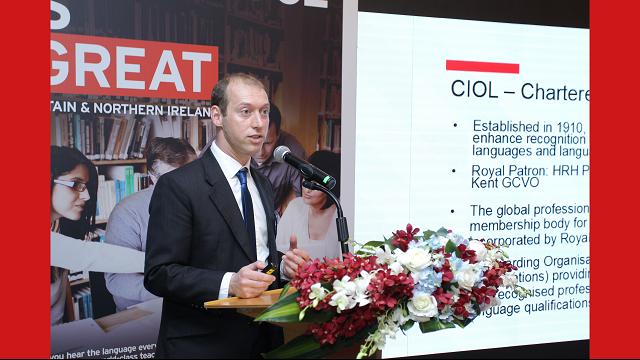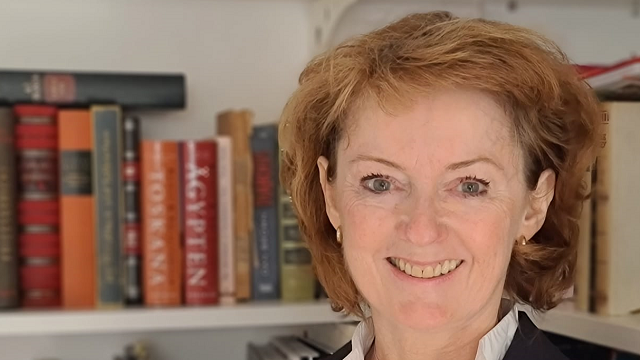-
QUALIFICATIONS
- For Linguists Worldwide
- For UK Public Services
- Preparation
- Policies & Regulation
-
MEMBERSHIP
- Join CIOL
- Professional Membership
- Affiliate Membership
- Chartered Linguist
- Already a member?
- Professional conduct
- Business & Corporate Partners
-
LANGUAGE ASSESSMENTS
- English
- All Other Languages
-
EVENTS & CPD
- Webinars & Events
- CIOL Conferences
- Networks
- CIOL Mentoring
-
NEWS & VOICES
- News & Voices
- CIOL eNews
- CIOL Awards
- The Linguist Magazine
- Jobs & Ads
-
RESOURCES
- For Translators & Interpreters
- For Universities & Students
- Standards & Norms
- CIOL & AI
- All Party Parliamentary Group
- In the UK
- UK Public Services
- Find-a-Linguist
Can you forget your first language?

An academic and personal reflection on ‘language attrition’
by Dr Pier Pischedda, MCIL Chartered Linguist
Losing touch with your mother tongue
As much as we can learn a language, we can also lose it. This is a familiar topic in linguistics, and as linguists, we often discuss how maintaining a second language requires constant study and active use, especially for professional purposes. What we sometimes forget, however, is that the same process can also affect our mother tongues.
I want to tell this story, then, of how preparing teaching materials on this topic forced me to face that reality.
I never gave the above process much thought, as English gradually permeated my life and my speech. After fifteen years of living in the UK, far from my birth country, Italy, I began to notice subtle changes in my active Italian knowledge. Preparing lectures on language attrition - defined as the gradual weakening of language proficiency due to reduced exposure or use - forced me to reflect not just as an educator, but as a person.
It made me feel vulnerable. But it also taught me something important: it’s not just our second languages that fade - even the languages we’ve spoken since childhood can slowly slip away. And this is ok. We spend so much time mastering our working second languages that we often overlook what’s happening to our first language.
What does linguistic theory tell us about language attrition?
Linguists define language attrition as the ‘non-pathological loss of a language’, typically resulting from long periods of disuse or limited exposure. It can affect both first (L1) and second languages (L2), and it manifests in different ways: reduced vocabulary recall, slower processing, grammatical slips.
Importantly, attrition is not the same as “forgetting” a language in an absolute sense. Research shows that the underlying knowledge remains present - the speaker hasn’t lost the language entirely. Rather, what fades is access to that knowledge. The brain’s neural pathways shift based on what we use most often, and when we stop using a language, we weaken the activation patterns that would normally bring that language to the surface. In short: the language is there, but harder to reach.
The two most common triggers for attrition are a lack of exposure and a lack of regular use. Over time, these gaps reduce a speaker’s vocabulary retrieval, fluency and/or confidence, even if comprehension remains relatively stable. But attrition doesn’t follow a single path; indeed, not everyone experiences it in the same way. Factors such as age of migration, initial proficiency, emotional connection to the language, and even personality traits can all shape how - and to what extent - attrition occurs.
The longer the gap between active use and real-life need, the greater the risk of erosion. This is particularly common among multilinguals who move abroad or switch into environments where a different language dominates their daily lives.
Jealousy towards my past self?
I didn’t expect it to happen to me - at least, not with Italian.
As an Italian academic who’s lived and worked in the UK for many years, I’ve experienced a gradual but very real distancing from my native tongue. My everyday life is conducted in English: teaching, writing, emailing - even thinking. I still speak Italian with my family, but those conversations are often informal and quick. The high-register, academic Italian I once used with ease now feels distant.
The realisation truly hit me while drafting an email to another Italian academic a few years ago. I struggled to find words that didn’t sound overly conversational. It seemed my Italian was now only fit for family chats via phone, but not for formal correspondence.
Another moment came when I opened my undergraduate thesis - now fifteen years old. As I read through it, I felt something unexpected: jealousy. Jealousy of my own past self’s language proficiency. What an absurd situation, I thought.
Language and identity
What complicates language attrition is how deeply language is tied to identity. Italian isn’t just my first language - it’s the voice of my upbringing. To feel it slipping, even slightly, feels like a kind of betrayal. Not just of the language, but of the version of myself who once held it firmly.
And when your profession is built around words, this disconnect can feel disorienting. How can I call myself a linguist - someone who studies and teaches language - if I’m not fully maintaining my own?
When you teach what you’re living
One of the more surreal aspects of this experience is that I teach language attrition in my multilingualism and sociolinguistics modules. I explain the phenomenon to students all while feeling it unfold within me. And I do mention this to my students, who usually react with a warm laughter when I open up about it.
I suppose, if anything, this teaches them that attrition is indeed a lived phenomenon. And maybe this is the most honest way to teach it.
This is one of those moments where your own teaching triggers unexpected self-reflection - one that forces you to confront one of the most dreaded fears for any linguist: the fear of losing proficiency. And not just because you’re struggling to maintain a less-used L2 - but because, in working so hard to perfect your L2, you’ve neglected to ask what that effort means for your L1.
A natural shift - but can you get it back?
Of course, I know this isn’t failure. Attrition is a natural consequence of immersion in a different linguistic environment and teaches us that language proficiency isn’t fixed.
Some people reverse attrition through active re-engagement: reading more, watching media, revisiting grammar books or speaking the language regularly again. And yes, these things help. But there’s also space to accept that languages shift in how they live within us. Sometimes they’re polished and ready; sometimes they’re dormant.
I tell myself my identity hasn’t diminished; it’s simply evolved. I still hear Italian in my thoughts, in my accent, in the cadence of my English. The emotional connection remains, even if the vocabulary has softened.
You are still a linguist
To other language professionals: it’s okay if you forget a little. It’s okay if you hesitate. It’s okay if your L1 or L2 feels rustier than it once did. That doesn’t make you any less of a linguist, a translator or a multilingual speaker.
As practising linguists, we often focus so intensely on perfecting our L2s - refining our academic English, our professional French, our interpreting Spanish - that we can forget our L1s need attention, too. Language maintenance is a lifelong balancing act.
And maybe that’s what makes language attrition such a difficult topic to talk about - it exposes a kind of vulnerability. We’re trained to celebrate mastery, but attrition reminds us that knowledge isn’t fixed - and neither are we.
In a field that often celebrates acquisition and fluency, we should also make space for the complex experiences of forgetting, and relearning. Attrition isn’t failure. It’s a reflection of the ways our linguistic selves grow.

Dr Pier Pischedda is a Lecturer in Linguistics and Intercultural Studies at the University of Leeds, UK, with over a decade of experience in academia. His teaching and research focus on multilingualism, language change, and the relationship between languages and cultures, with broader research interests in sound symbolism and visual media. A Chartered Linguist and trained translator, Pier is passionate about understanding how language shapes identity across time, media and contexts.
You can find Pier on LinkedIn here.
Views expressed on CIOL Voices are those of the writer and may not represent those of the wider membership or CIOL.
More
The Chartered Institute of Linguists (CIOL), Incorporated by Royal Charter, Registered in England and Wales Number RC 000808 and the IoL Educational Trust (IoLET), trading as CIOL Qualifications, Company limited by Guarantee, Registered in England and Wales Number 04297497 and Registered Charity Number 1090263. CIOL is a not-for-profit organisation.








